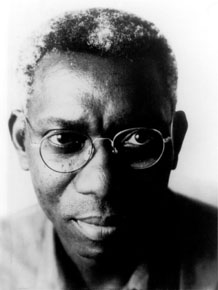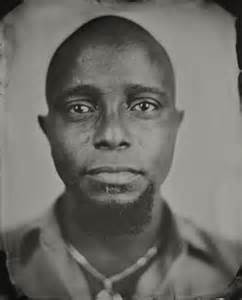
“Believing in Iron” and “Against Silence” are poems that speak directly to African American history, lives and labor as they intersect with our domestic and international military campaigns.
Poet Yusef Komunyakaa’s work in part draws from his experiences as an African-American growing up in Louisiana during the Civil Rights movement and later, as an American editor and correspondent covering the Vietnam War. Tyehimba Jess, a promising new voice, connects our current drone campaigns in Pakistan (among other countries) to the growing militarization of our American policing institutions and the impact of both on young people of color in the United States.
Komunyakaa’s narrator asks the reader if the struggle of structural inequity can be translated into a literary aesthetic, and does this by interrogating symbols of modernist poetry and military campaigns against his family’s working lives. While Komunyakaa’s narrator is visited in dreams by the consequences of war, Jess’s list of names insists the reader acknowledge complex identities and histories archived in the people his poem represents, as they themselves are archived by newspapers and morgues. He lists the ordinary circumstances in which their lives are ended and their names, he points out, have the music and complexity of effaced lyric poetry.
-Samina Shahidi
“Believing in Iron”
The hills my brothers & I created
Never balanced, & it took years
To discover how the world worked.
We could look at a tree of blackbirds
& tell you how many were there,
But with the scrap dealer
Our math was always off.
Weeks of lifting and grunting
Never added up to much,
But we couldn’t stop
Believing in iron.
Abandoned trucks & cars
Were held to the ground
By thick, nostalgic fingers of vines
Strong as a dozen sharecroppers.
We’d return with our wheelbarrow
Groaning under a new load,
Yet tiger lilies lived better
In their languid, August domain.
Among paper & Coke bottles
Foundry smoke erased sunsets,
& we couldn’t believe iron
Left men bent so close to the earth
As if the ore under their breath
Weighed down the gray sky.
Sometimes I dreamt how our hills
Washed into a sea of metal,
How it all became an anchor
For a warship or bomber
Out over trees with blooms
Too red to look at.
–Yusef Komunyakaa
From Magic City

“Against Silence”
My name is Tyehimba Jess. I am a black poet. I have a silence to be rightened. I have a silence after each shooting. I remain a nation unsilenced. I am a poet murdering silence. My name is Eric. My name is Bell. My name is Eleanor. My name is nation. My rights fit any murder description. My remains remained on the asphalt for four hours while the crowd screamed about my rights. Then, the silence as I was shoved into an SUV and carted to the morgue. My name is poetic: Trayvon, Diallo, Ousmane, sing my blackness in the headlines. My name once held all possibilities, but now flies out from the mouth hauling anger and sorrow. I have a right to be angry. I have a morgue inside my silence. I have an arm against my throat and a bullet in my head. I have a wedding to go to, a graduation to walk, a little brother to chill with, and now I’m a face on a placard in a sea of anger, a newspaper article, I’m a question passed from one generation to the next, a lesson in fear, and all I really want is to go home. My name is murdered. My name is a silent snapshot on the funeral program. The officer remained silent. He was programmed by a nation’s anger, a moaning silence born in the chokehold of a slaveship. Ask if he is a drone cruising the streets of the nation, programmed to murder black. Ask a drone for the poetry of the names of the rightless it has murdered. Ask the silence about your rights. My name is Pearly Golden. My name is Tariq Aziz. My name is Kayla Moore. My name is Aiyanna Stanley Jones. My name is Fazal Wahad. My name is a nation of funerals. The silence after my name is murdered by the sound of the next. My name is Michael Brown. My name is Kimani Gray. Kendric McDade. Mashooq Jan. Mohammad Yaas Khann. The angry drone spotted me while I was coming home from the store, on the way to work, on the way to a wedding, walking down the street. The drone looked down at me from its great height and power and the sky was full of its murder. My murder is a right this nation angers for. My name is a poem. My name is not silence. I am a black poem written into the silence left behind.
-Tyehimba Jess
brooklynpoets.org


